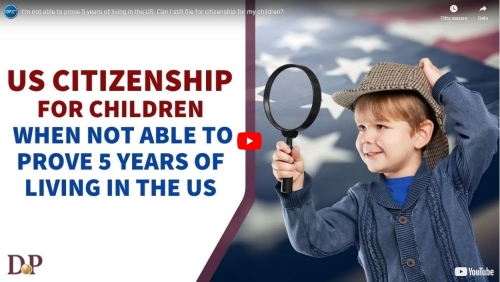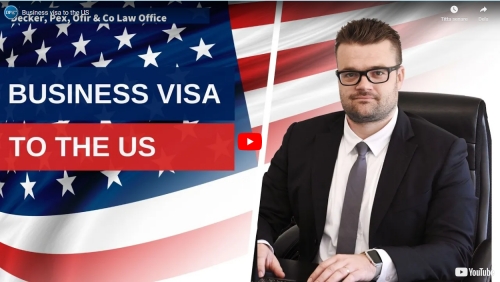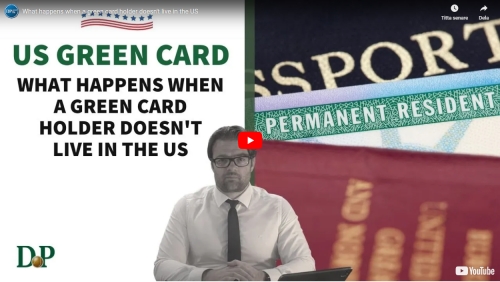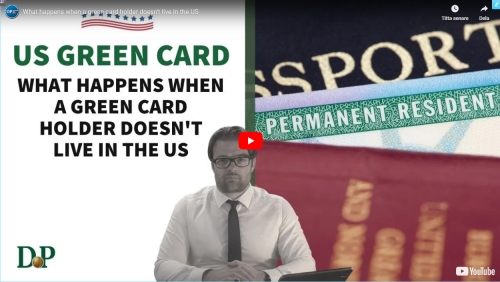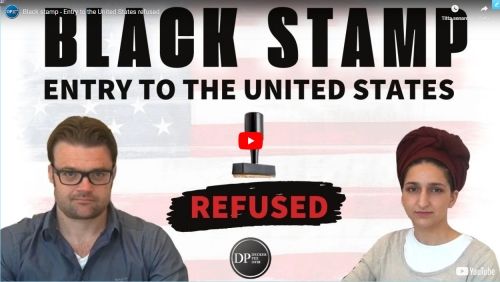In this article, attorney Michael Decker, one of the founding partners at Decker, Pex, Levi, will describe the most common reasons for Visa Denial to the US, and what you are able to do if your application was denied.

What are the Most Common Reasons for a Visa Denial to the US?
If you have been refused entry to the United States, it is essential to know the main reasons to address the issue before applying again:
- An inaccurate or incomplete application: simple mistakes, such as omitting essential information and stating incorrect passport details, resulting in a Visa Denial.
- Intending to overstay your visa: this is probably the most common reason for a Visa Denial to the US; the officer may have reservations if your application does not convince them that you will leave the country at the end of your authorized stay.
- Insufficient ties to your home country: if the consular officer believes that the applicant does not have sufficient ties, such as a stable job, family ties, or property in his/her home country – they may deny the visa out of concern that the applicant might overstay their authorized period in the US. Accordingly, if an applicant tries to receive a visa from a third country, which is not his/her home country, their Visa Denial to the US will be more likely.
- Financial instability: since applicants are typically required to show that they have enough funds to cover their expenses during their stay in the US (including airplane tickets, accommodations and other various expenses), the officer may question your financial ability to support yourself while in the US, resulting in a denied application.
- Criminal record: having a criminal record will not automatically lead to a Visa Denial to the US – but having a criminal history will raise a red flag with the visa officer that you might commit crimes or might be a security risk. It is vital to eliminate any law violations before applying for a visa, to avoid refusal. However, it is important to note, that even if you have a criminal background, you may be eligible to apply for a Waiver of Inadmissibility with the USCIS (US Citizenship and Immigration Services( – see more details in the next part of this article.
- Prior Visa Denial to the US: a previous rejection can raise concerns about your eligibility or credibility as an applicant; while a previous denial does not automatically result in a subsequent denial, it may influence the consular officer’s decision-making process. If you were unfortunate to receive a denial, it is important to request clarification from the visa officer on the reason for the denial, so that you can better prepare your next application.
- Prior immigration or visa violations: the case is similar if an applicant has a history of immigration or visa violations, such as overstaying a previous visa or being deported from the US – these may negatively impact their chances of obtaining a new visa.
What is a Waiver of Inadmissibility to the US?
There is another course of action to deal with a Visa Denial to the US, which is filing a “Waiver of Inadmissibility” with the USCIS. This waiver is a request to the U.S. government to allow you to enter the country even though you are inadmissible. There are many reasons why someone might be inadmissible, such as having a criminal record (as mentioned above), being a threat to national security or having overstayed a visa in the past. If you are inadmissible, you will not be able to get a visa or enter the country without a waiver.
The Waiver of Inadmissibility is discretionary , and up to the Department of Homeland Security to decide whether to approve a waiver for each particular visa applicant or not.
The process of applying for a waiver includes of filing Form I-601, together with evidence to support your application, such as personal statement, letters from family members, employers and community leaders. Specifically, If the waiver has to do with a Visa Denial to the US due to:
- Criminal record – you should include in the application any legal documents related to your case, such as court records, police reports, or judgments. These documents can provide objective evidence of the circumstances and help support your claims.
- Health-related issues – you should gather comprehensive medical records, diagnostic reports, and expert opinions from reputable medical professionals that demonstrate the condition is not a threat to public health or safety. Include evidence of treatment, improvement or any mitigating factors.
- Financial problems – you should provide evidence of your financial stability and ability to support yourself while in the United States. This can include bank statements, tax returns, employment contracts, or any other relevant financial documents.
What can I do if I received a Visa Denial to the US?
There are two main reasons for Visa Denial to the US:
- 221(g) Visa Denial due to Incomplete Application or Sufficient Documentation: Section 221(g) of the Immigration and Nationality Act (INA) allows a consular officer to issue a temporary refusal of a visa application if additional information or documentation is needed to make a final decision. When an applicant receives a 221(g) Visa Denial to the US, it means that the consular officer requires further evidence, documentation, or administrative processing before a final decision can be reached. You have one year from the date you were refused a visa to submit the additional documents or information. Otherwise, if you do not provide the required additional information within one year, you must reapply for the visa and pay another application fee. Once the requested information is provided or the processing is completed, the consular officer will continue with the evaluation of your application.
- 214(b) Visa Denial due to Visa Qualifications and Immigrant Intent: Section 214(b) of the INA states that an applicant for a nonimmigrant visa is presumed to be an intending immigrant unless they can demonstrate strong ties to their home country and sufficient reasons to return after their temporary stay in the US. If a consular officer denies a visa application under 214(b), it means they have determined that the applicant has not provided enough evidence to overcome the presumption of immigrant intent. In other words, the officer believes that the applicant does not have strong enough long-term family, social or economic ties to their home country or has not sufficiently demonstrated the intent to return.
If you were found ineligible under section 214(b) of the INA, you will have to present evidence of significant changes in circumstances since your last application. If you reapply for a visa after previously being found ineligible, you must submit a new visa application and pay the visa application fee again.
How can an Immigration Lawyer help me dealing with a Visa Denial to the US?
Since Visa Denial to the US can be a challenging task, hiring an experienced immigration lawyer is useful. An immigration lawyer possesses knowledge of the complex US immigration laws and can identify weaknesses and strengths of a case. Hiring an experienced immigration lawyer increases the probability of visa approval, reduces processing time, and prevents future visa denials.
Decker, Pex, Levi, a reputable law firm with branches in Jerusalem and Tel Aviv, specializes in US immigration laws and has a dedicated US immigration team to assist you with your Visa Denial to the US. We will be happy to be at your service and assist you in everything related to this matter. You are more than welcome to contact us using the phone number or email address listed below.
The article was written in collaboration with attorney Adam Jonsson.





